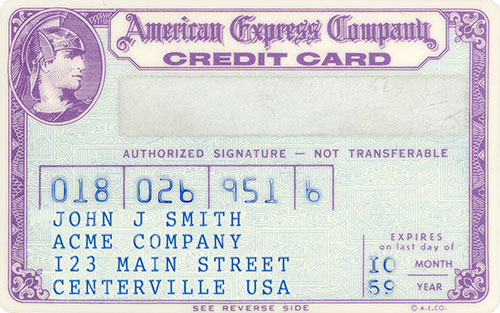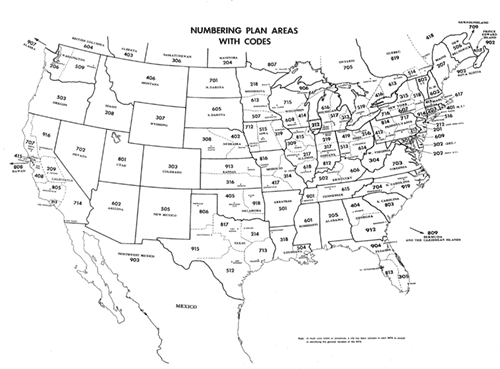The Gloss of Americana
Our latest set of glossary entries, on the nature of American culture, aims to move well beyond the stars and stripes. American culture is way too nuanced for that.
Sponsored By 1440
News Without Motives. 1440 is the daily newsletter helping 2M+ Americans stay informed—it’s news without motives, edited to be unbiased as humanly possible. The team at 1440 scours over 100+ sources so you don't have to. Culture, science, sports, politics, business, and everything in between—in a five-minute read each morning, 100% free. Subscribe here.
The Glossary of Tedium, vol. 5: American Culture
The decision by Europeans to colonize what we now know today as North America is perhaps the most disruptive action that the human race has ever undertaken.
It came with messy, controversial elements that we shouldn’t look back on positively today.
In part because of the number of people and experiences we’ve had, Americana is weird and interesting and doesn’t fit any single category—except that it is has something to do with the United States. With that in mind, here’s a little American, including in some categories you might not expect:

American Express
The name of the express mail company that launched out of Buffalo in 1850. In its early years, it was essentially a Pony Express competitor. The company made a hard pivot into financial services starting in the early 1900s and became a credit card company starting in the 1950s. It is now the largest credit card company in the United States by total dollar volume.
Baby Swiss cheese
A form of cheese that, despite the name, is actually American; it was developed in Ohio in the 1960s by a Swiss immigrant named Alfred Guggisberg. And if you want to suggest it’s not really American because it was developed by an immigrant, let me point out that American cheese was developed by a Canadian immigrant, James L. Kraft.
Clinton Grand Jury Testimony
The political football featuring the testimony that led to president Bill Clinton’s impeachment vote, that helped Netflix gain some of its first buzz. The company sold DVDs of the testimony for two cents, plus shipping, which led the company to build press interest in its DVD-by-mail product, which gradually became the streaming service everyone watches today.
Disco Demolition Night
The infamous incident at a Chicago White Sox doubleheader that led to a riot in the summer of 1979. The incident, inspired by radio DJ Steve Dahl, drew nearly 60,000 people in the stadium, plus 15,000 in overflow—many of whom came to see their disco records destroyed. The incident, the most famous baseball riot, but one of many, led the White Sox to forfeit the second game of the doubleheader.
Emergency Committee on the Transportation Crisis
A public advocacy group in the Washington D.C. area that successfully fought against a decision to bring interstate highways to many parts of the District, instead funneling its funding into a local Metro system. The result kept the District’s neighborhoods more viable than they might have been otherwise and made the D.C. Metro, if not perfect, better than many other urban alternatives.
Fireworks by Grucci
The name of the company that manages a number of major fireworks shows each year around the Fourth of July. In the 1980s, the firm developed a computerized method of programming fireworks using the IBM PC, utilizing popular programs of the era, including Lotus 1-2-3 and dBase III, to manage the choreography. With the help of those tools, along with its own custom software, it was able to shoot off more than 40,000 projectiles during a major Statue of Liberty celebration in 1986.
Guano Islands Act
An 1856 law, passed by Franklin Pierce, that made it legal for U.S. citizens to claim unoccupied islands for reasons of guano acquisition. This reflects a period in which guano was a popular form of fertilizer, and it led the U.S. to acquire a number minor outlying islands as a result. (Is it weird that the federal government was focused on this so soon before the start of the Civil War? Yes.)
Hennepin, Illinois
A small town, population 769, which is by far the smallest town with a three-number interstate highway spur in the country. The reason for this? At the time the highway was built, the town had a steel mill, which is important for defense materials—and the U.S. interstate system was built to support the defense industry.
/uploads/0226_icecubes.jpg)
The Ice King
A nickname for Frederic Tudor, a New Englander who set up agreements to extract commercially viable quantities of ice from lakes throughout Massachusetts, to ship to other parts of the world where ice was a fairly exotic thing. It took him a few tries, but he eventually figured out a workable solution to ship ice. Now we use refrigerators for this.
Jackalope
A form of cryptid that hails from the state of Wyoming in its best-known legendary form, but also has unexpected roots in the state of Kansas, where a viral infection gave rabbits in the state wart-like outgrowths that looked very similar to antlers—a defining feature of the jackalope.
Kingsford
A brand of charcoal briquettes that came to life in the 1950s, an evolution of a byproduct developed by Henry Ford from the waste product created when he used wood in his vehicles. The charcoal brand is named for Edward G. Kingsford, who managed the facilities that manufactured the charcoal for Ford. Before it was known as Kingsford, the brand was actually named for Ford.
L’s GA
An avant-garde take on Abraham Lincoln’s Gettysburg Address, in which the performer, contemporary classical musician Salvatore Martirano, recites the text of the address while wearing a gas mask, having consumed helium. Dating to 1967, it was seen as a statement on the Vietnam War.
Frank Mankiewicz
A former NPR president who is considered a key instigator that led the Regan administration to kill any chance of the metric system being accepted in the United States. Mankiewicz nudged Lyn Nofziger, Reagan’s first-year press secretary, to make the case to shut down the United States Metric Board, which officially stopped any metric-conversion efforts dead in their tracks.

A telephone area code map from the 1960s. Here’s a larger version.
Numbering Plan Area
The original nomenclature used to describe telephone area codes when they were first developed for North America in the 1940s. Intended to replace a complex system of operators that Bell Telephone relied on, the structure of this system was shaped by population centers of the area. States with higher populations got multiple NPAs with the number 1 in the middle, while those with lower populations got area codes with 0 in the middle—meaning that, in an era of rotary phones, it was physically harder to dial people who lived outside of major population centers or in smaller states.
Open tryouts
A tactic used in American professional sports, particularly football and baseball, to encourage amateur players to give it a chance. When it works out, the players end up becoming famous enough for their own movies—but when it doesn’t, it just kind of wastes everyone’s time.
The Presidents of the United States of America
An alternative rock band that found success in the mid-’90s with a mixture of offbeat, energetic rock songs, humor, and a limited number of strings—just five between the three members. Inspired by Mark Sandman of the band Morphine, the band relied on a basitar (a guitar with two strings, one of them a bass string), and a guitbass (a guitar with three strings). Each instrument was tuned to C#, which gave the band its distinct sound. Best known for “Lump,” the band would remain active for more than 20 years before breaking up in 2015.
Qube Interactive Television
A groundbreaking interactive cable television effort, dating to the late 1970s, that launched in Columbus, Ohio. The decision to launch in Columbus, utilizing an interactive remote, was not an accident—the city had become a popular test market, reflecting a demographic that matched the United States as a whole. The service ended up being a test bed for some important cable networks, most notably MTV.
Rest Areas
A common feature of the U.S. Interstate Highway system, usually noncommercial in nature, though in some states (usually in the mid-Atlantic states) combined with restaurants and gas stations. The systems, set up as a recommendation by the American Association of State Highway Officials in 1958, became a well-known part of traveling down the highway, though budget cuts have at times left rest areas off to the side.
B.J. Snowden
A so-called outsider musician who is known for her synthesizer-based songs of patriotism about the United States and Canada. Snowden, a graduate of the Berklee College of Music who otherwise doesn’t fit the outsider mold, gained a fanbase for her songs, which partly honor her family ties to Canada. Her best-known song, however, is “America,” which notably has a very energetic ending.
Texas Instruments
An early computer company, best known for two things—first, developing the first integrated circuit; and second, creating the Speak & Spell. It’s American ingenuity at its finest.
The United States of America
A psychedelic rock act dating to the late 1960s that released just one highly influential album that was among the first to use electronic music components. The band, led by experimental composer Joseph Byrd, disappeared quickly, but was well-regarded in its day, often earning positive comparisons to Pink Floyd and The Velvet Underground. They are one of many things named after America.
Visual Show Director
A modern program for programming pyrotechnics choreography—working similar to Blender or AutoCAD, but with the capability to work directly with “firing” hardware that allows fireworks to go off in the sky. This tool makes it possible to program elaborate fireworks during public events.
World Team Tennis
An American coed sports league that notably brings together major tennis stars to play in a team format. The league, long associated with tennis icon Billie Jean King, inspired an interesting choice for a patriotic song—“Philadelphia Freedom,” written by noted British music team Elton John and Bernie Taupin, who wrote it basically to honor King, a close friend of John’s.
XFL
A springtime football league that people keep trying to launch—particularly, people with ties to professional wrestling. The second iteration remains active but it has already gone through a bankruptcy and is expected to have another season in 2024.
Yooper
An informal name for a resident of the Upper Peninsula of Michigan, a part of the state that is sparsely populated but still highly valued enough that it became a key part of Henry Ford’s business in the 1920s. The name is also used by the comedy band Da Yoopers.
/uploads/Robert-Crumb.jpg)
Zap Comics
An long-running underground comix series, most heavily associated with the most American of underground artists, Robert Crumb. Crumb, a trendsetter in the world of remote work, was able to build a strong career working remotely as an illustrator for American Greetings—a company he still drew a paycheck for into the 1970s, well after the launch of Zap Comics made him famous.
There are certain images of America that will appear on television this weekend, or will perhaps show up outdoors at a park or event near your home.
These often present certain images that require us to accept certain things about this country—that its military might is great, or that American exceptionalism trumps all.
That story of America leaves a lot of people out. Some of those people are creative and have their own viewpoints of the world. Which is why I’m sort of happy with the fact that some of the entries in this glossary are bizarre musical experiments or approaches that don’t fit the mold of Americana. Our discussions of America don’t have enough people wearing gas masks or using the name of the country to actively subvert it.
When I see fireworks and hear talk of freedom and the people that fought for us to get here, sure, certainly those things are great and worth discussing and highlighting and honoring. But they paint a single lane for a country that is among the world’s most complex, made up of people who had no clue that they were signing up for a specific beliefs system just because they were born here.
There is nothing wrong with creating a lane for the oddballs. And honestly, that’s what Tedium is all about.
Less Stars and Stripes, more R. Crumb.
--
Find this on an interesting read? Share it with a pal!
And thanks again to 1440 for sponsoring.
:format(jpeg)/uploads/tedium070123.gif)
/uploads/tedium070123.gif)


/uploads/ernie_crop.jpg)